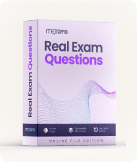Test Prep CFA Level 1 - CFA Level 1 Exam
Page: 1 / 792
Total 3960 questions
Question #1 (Topic: Ethics)
According to the AIMR-PPS, ________ are defined to include all discretionary and nondiscretionary assets.
A. individually managed assets
B. individual investor's assets
C. total firm assets
D. global assets
Answer: C
Question #2 (Topic: Ethics)
Standard IV (B.7) deals with ________.
A. Priority of Transactions
B. None of these answers
C. Disclosure of Referral Fees
D. Performance Presentation
E. Prohibition against Misrepresentation
F. Disclosure of Conflicts to Clients and Prospects
G. Preservation of Confidentiality
H. Prohibition against Use of Material Nonpublic Information
Answer: F
Question #3 (Topic: Ethics)
Standard III (D) deals with ________.
A. Professional Misconduct
B. Use of Professional Designation
C. Plagiarism
D. Fundamental Responsibilities
E. None of these answers
F. Obligation to Inform Employer of Code and Standards
Answer: E
Question #4 (Topic: Ethics)
Another name for "access" person is ________.
A. none of these answers
B. supervisor
C. ombudsman
D. guardian
E. fiduciary
F. covered person
Answer: F
Question #5 (Topic: Ethics)
Which of the following is/are true about the Performance Presentation Standards?
I. A member who complies with the mandatory requirements of the PPS but does not follow the recommended requirements can publicly claim compliance with
the PPS.
II. The PPS are designed to be primarily a performance measurement framework.
III. The Standards are not designed to enhance or detract from the presentation of historical results.
I. A member who complies with the mandatory requirements of the PPS but does not follow the recommended requirements can publicly claim compliance with
the PPS.
II. The PPS are designed to be primarily a performance measurement framework.
III. The Standards are not designed to enhance or detract from the presentation of historical results.
A. III only
B. II and III only
C. I, II and III
D. I and III only
Answer: D
